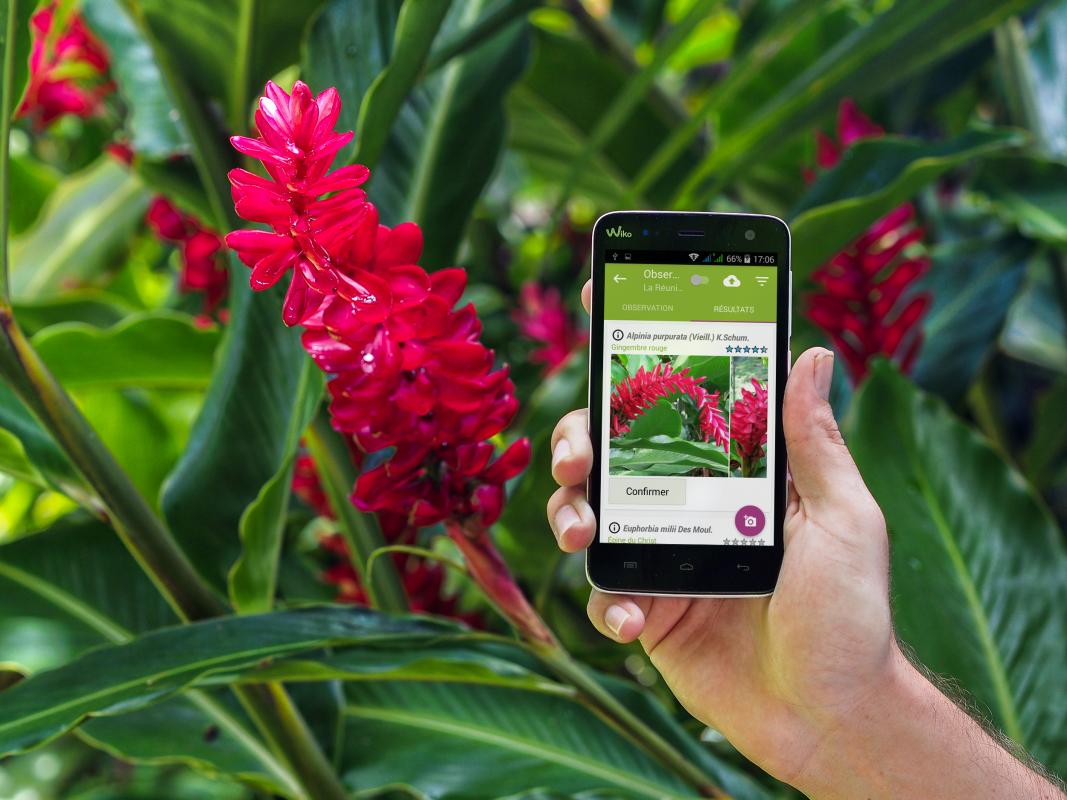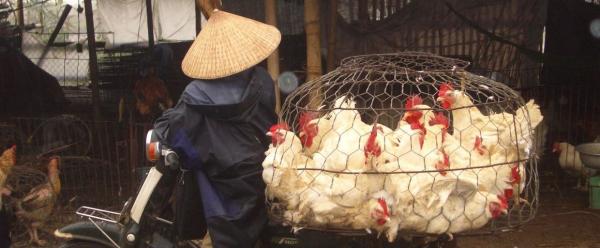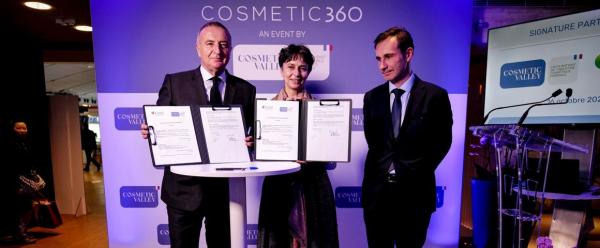Institutional news 21 January 2026
- Home
- Press area
- Press releases
- consortium platform participatory science plant world
Pl@ntNet is celebrating its 10th anniversary, securing its long-term future through the creation of an open consortium

Pl@ntNet was launched in 2009 with the aid of the Agropolis Fondation. It is a mobile and online participatory science platform which aims to facilitate the collection, exchange and accessibility of botanical data using the latest machine learning technology. Besides the mobile app, Pl@ntNet has given rise to some of the largest plant-related networks and datasets in the world.
A consortium to secure the long-term future of Pl@ntNet
Some ten years after the launch of the platform, the founding members (CIRAD, INRAE, INRIA and IRD) have set up a consortium to secure its long-term future. The consortium, run by INRIA and affiliated with the Agropolis Fondation, is looking for new members, for example scientific, educational, not-for-profit and industry partners. Several membership categories exist, with involvement in the platform varying depending on the annual subscription amount selected. New members will be able to take part in the governance of Pl@ntNet and have their say in defining its development priorities, thereby enabling them to become key stakeholders in characterizing plant biodiversity.
Pl@ntNet, the leading app on plants
Pl@ntNet is now used by millions of professionals and amateurs around the world in a wide variety of fields, including research, education, agronomy, ecotourism, and business. The tens of millions of observations collected represent a mine of new data whose analysis can improve knowledge of the plant world and aid in preserving agricultural biodiversity. Indeed, the global changes that we are facing make it more necessary than ever to improve our understanding of our environment so that we can anticipate how it will change and protect it.
About:
CIRAD is the French agricultural research and international cooperation organization working for the sustainable development of tropical and Mediterranean regions. Along with its partners, it is convinced that agriculture has a central role in the major transitions required to guarantee a sustainable future for every country in the global South. Generating and sharing new knowledge, contributing to innovation processes and building the capacity and skills of stakeholders in those countries to support their sustainable development are the drivers of its operations.In particular, its activities centre on issues such as biodiversity, the agroecological transition, climate change, health (of plants, animals and ecosystems), the development of rural territories, and food systems. CIRAD works in some fifty countries on every continent, thanks to the expertise of its 1650 staff members, including 800 researchers, backed by a global network of partners.
INRAE , the French National Research Institute for Agriculture, Food and the Environment, is a major research and innovation body set up on 1 January 2020. This applied research institute was created through the merger of two French research bodies, INRA and IRSTEA. INRAE comprises a community of 12 000 people, with 268 research, service and experimental units located in 18 centres across France. The institute is one of the leading research bodies globally on agriculture, food, plant and animal science and ranks 11th in the world in ecology and the environment. It is also the foremost research body in the world in the combined field of agriculture, food and the environment. INRAE aims to play a key role in the transitions needed to tackle the biggest challenges facing us globally. In light of population growth, climate change, decreasing availability of resources and declining biodiversity, the institute is developing solutions for diversified farming, good-quality food and sustainable management of resources and ecosystems.
INRIA is the French National Research Institute for Computer Science. World-class research and technological innovation are its core priorities, with the aim of developing and supporting scientific and entrepreneurial projects that create value for France within a European perspective.
Agropolis Fondation is an organization that promotes scientific cooperation in the specific areas of research, training and innovation to aid stakeholders in agriculture and sustainable development. Its primary role is to promote the agroecological transition in the agriculture of tomorrow through its international, multi-stakeholder network and partnerships. It has held the "Labex Agro" label as a centre for excellence in agronomic research since 2011 under the French government's Investment in the Future programme, and has now retained that label for a further five years (2020–2024).
The French National research Institute for Sustainable Development (IRD) is a French public multidisciplinary research body and a stakeholder in the international development agenda. It boasts a novel model which revolves around equal scientific partnerships with developing countries. IRD's research aims dovetail with the implementation of the Sustainable Development Goals. The objective is to support development policies and the elaboration of solutions tailored to the environmental, economic, social and cultural challenges facing humanity and the planet.



























